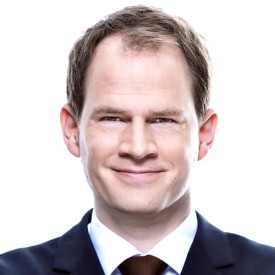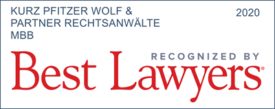Trademark law grants the owner of a trademark an exclusive right to use it for certain goods and services. Protection is only granted for the respective country (e.g. Germany or Switzerland) or association of countries (e.g. the European Union or Benelux) in which the trademark enjoys protection.
The essential legal regulations for Germany can be found in the Trademark Act (MarkenG) and on a European level in the European Union trade mark regulation (EUTMR). For other countries, the respective national trademark laws apply.

Trademark law is of essential importance to almost all companies because it ensures that their own goods and services are distinguishable from those of other companies and thus also enables the company itself to be identified. With trademark rights, investments in one’s own branding can be permanently exploited, secured and defended.
The trademark serves to identify goods and services according to their origin, the commercial designation serves to identify companies by name, and the work title serves to identify special designations for printed titles, films, musical works and similar works. The trademark also has an attention-getting, advertising and communication function, which can also be of essential importance for the entrepreneur.
The trademark, as probably the most relevant right in the laws of signs and trademarks, can be protected for an unlimited period of time if extended and used appropriately, in contrast to all other industrial property rights. Trademark protection is usually obtained by application and registration at the respective trademark office.
Even before applying for a trademark, one should think about the right trademark strategy, because this often determines the effectiveness of the trademark protection and thus the success of a product and the producing company.
It is therefore advisable to check in advance whether there are any possible obstacles to protection under trademark law and whether there are any earlier conflicting trademarks and marks, in order to avoid problems in the application procedure or even to avoid being held liable for trademark infringement. Whether there are older trademarks that may be problematic can be determined by a professional similarity search. Older right holders can also file an opposition against the application. Finally, a trademark can be cancelled even after successful registration. In order to be able to assert corresponding rights against younger trademarks and to defend the trademark as required by law, trademark monitoring should also be carried out in order to defend against confusable marks at an early stage.
Once in force, a trademark grants its owner the sole right to exploit it commercially or to license it to third parties. Furthermore, the transfer of trademarks is a regular topic, especially in the context of company transfers, where a due diligence of industrial property rights can provide the decisive arguments for or against a company takeover. After all, it is often the existing brands and trademarks that make up the value of a company.
Infringements of trademark law can be effectively defended against by means of warnings, injunctions and other instruments, and claims for injunctive relief, information, damages, removal and reimbursement of legal fees can be enforced. Criminal measures and seizures by customs are also possible in the case of import and export of counterfeit goods.
It is therefore advisable to seek expert legal support if the difficulties and uncertainties of trademark law described above are to be avoided and trademarks and other distinctive signs are to be effectively protected.
Our expertise in trademark law
With several specialized attorneys-at-law and certified experts in IP law, our law firm has extensive expertise in trademark law. We have been repeatedly been recommended by the “World Trademark Review”.
We advise our clients on all trademark and brand law issues. We file trademark applications in Germany, Europe and worldwide, conduct opposition and appeal proceedings, if any, and monitor registered trademarks. Furthermore, we support our clients in any trademark and brand law disputes in Germany and abroad, regardless of whether it is a matter of enforcing one’s own trademark or brand or defending against a claim by another company. For this purpose, we can draw on proven international contacts to specialized colleagues and networks, if necessary. Finally, the drafting of license agreements and the performance of due diligence examinations are also part of our trademark and brand law activities.



